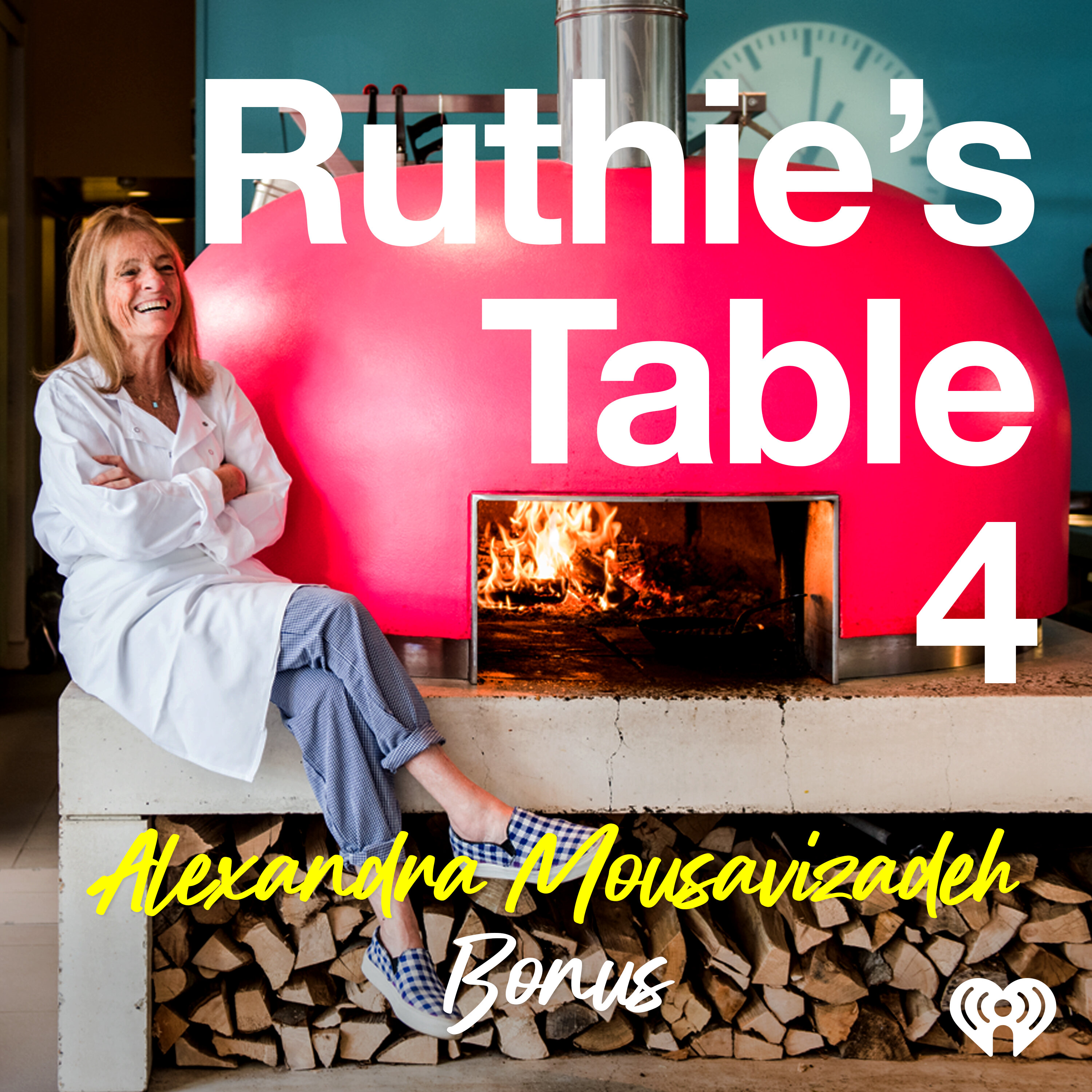
·S4 E38
Bonus: Alexandra Mousavizadeh remembers traditional Danish cuisine
Episode Transcript
You were listening to Ruthie's table for in partnership with Montclair.
Speaker 2Now we see Danish food as one of the mechas of cultural people.
I was flown, you know, from London to Copenhagen on a plane, just to have a meal, you know, or two meals, and you know it's now seen as chefs here will go to Copenhagen to do a start.
Speaker 3What do you think, Well, what was the food?
What were you eating?
Was it fish?
Was it?
Speaker 1Yes?
Speaker 3And it opened sandwich?
Speaker 1Well, Denmark is famous for its open sandwiches, but it's also fish is a really core.
Speaker 3Ingredient of the Danish cuisine.
Speaker 1We would have cord and pickled herrings and place and so and mackerels and eels and and that was very much the core of our of the sort of Danish cuisine.
Speaker 3And my father cooked that very very well.
Speaker 1He did.
He did cord in every which way.
But he was also a hunter.
And I would go with him and he would shoot deer and pheasants and ducks and whatnot, and they would always be hanging somewhere outside and then I would help him clean it up and he would he would cook, and he was and he was an amazing cook of game and of birds too.
You know, how do you do that without you know, it turning out dry?
Speaker 3But he was.
He was very good.
So there was we had that in our house, and then.
Speaker 1We had a lot of the fish of fish, and it harks back.
I think you could sort of trace the Danish food, you know, uh you know ingredients of course, all the way back to Viking times.
You look at what was eaten there.
Of course, obviously it has to be like seed.
What did Vikings do?
Speaker 3They ate?
Speaker 1They ate cord, and they ate herring, and they ate ashley haliburt at the time, and that was that sort of still to this day.
And a lot of foraging.
I mean even back in the seventies you would go and pick things in the woods.
Speaker 2Do you think this lad the kind of foundation for the new Danish fish?
When when was that revolution in Danish?
When when did that happen?
Speaker 3Or was it a slow burn?
Speaker 1I think the tradition of foresting and fish local produce was there all along, but I think it was really the opening of Noma and red Zeppi that you know tell.
Speaker 3Us about Nomah, Well, Nomah, I.
Speaker 1Mean it's built on that tradition of foraging, and he's very pureist.
And you've been there, and it's an unusual experience because and he's extremely experimental, and as you said, he has borne a lot of chefs and kitchens that have sprung up all across Copenhagen and Denmark that follow the same principles of local produce and and sort of rethinking the Danish sort of the Danish menu.
And it's so it's so with such joy to go back to Copenhagen.
That was very different.
When I was growing up in the seventies.
No one would ever go to a restaurant.
There were maybe.
Speaker 3Two that I can repair to take you to a restaurant.
Speaker 1No, not that wasn't a big we I think, like most in Copenhagen thought that it was quite frivolous to go to a restaurant.
We would always eat at home and entertain at home.
But now it's it's it's the most Yeah, it's a mecca.
It's a mecca.
Speaker 3Yeah.
Speaker 2Well, I think the other thing that Rema did is that he with Noma is he he really focused, not just as you say, on the ingredient and the seasonality and the forging, but really teaching and spreading the word and making you know.
I say, when you walk into Noma, you see all the chefs around a table and there you feel they're really taking care and they're learning.
And it was and I think that spread then when they left Nomah, they started their own restaurants.
And it does also show how food can you know, be the culture of a city of a nation and bring people and tourism and then you have great restaurants and you have great hotels and they you know, and people are kind of traveling there and enjoying.
Speaker 1So I think is definitely having a moment now and I think it is driven by the food.
Speaker 3The food is what people often travel there for.
Speaker 1The restaurants that are that are great, and there's others like Geranium as also one of the one of the big sort of drawers to Copenhagen.
And as you say, it then drives the hotels that are opening up, the beautiful hotels that are that are that are now in Copenhagen that that really weren't there fifteen years ago.
So it's completely blossoming and uh and uh, and the bicycling.
Speaker 2And there are and they are Louisiana.
Yeah, it makes you want to get on a plane right now.
Speaker 1Thank you for listening to Ruthie's table for in partnership with Montclair